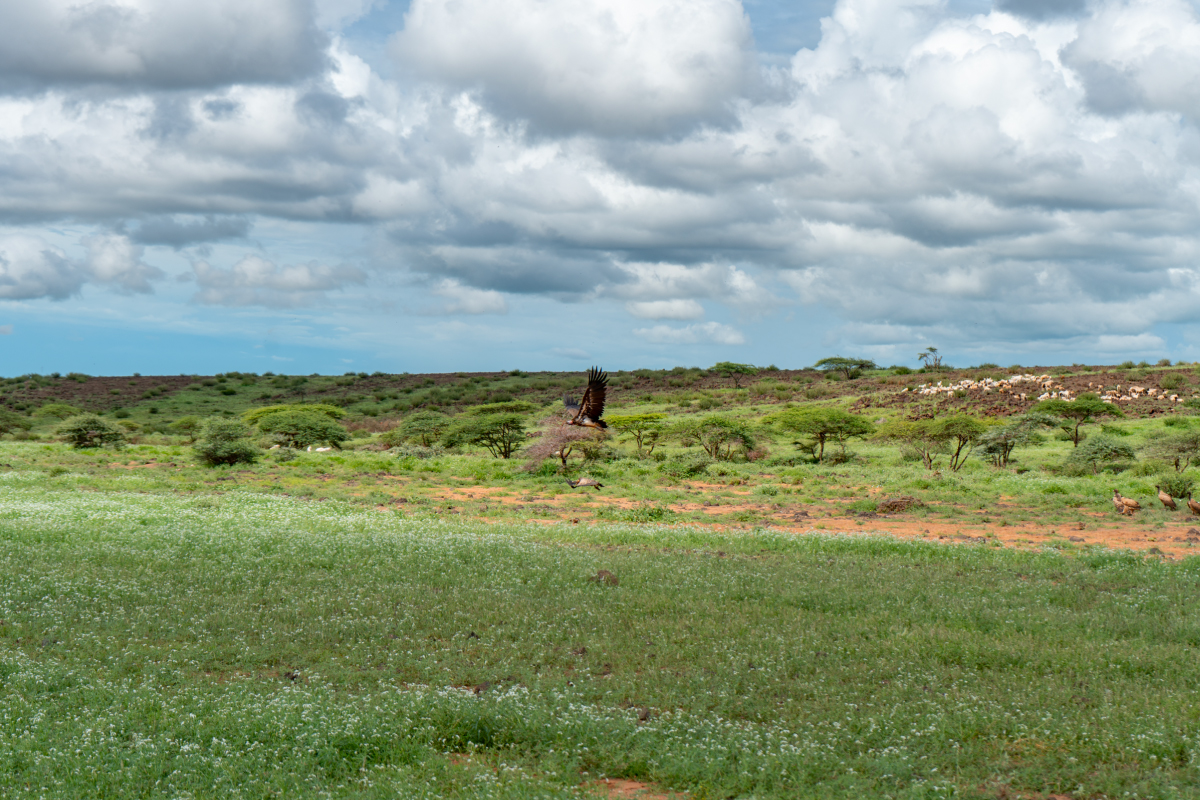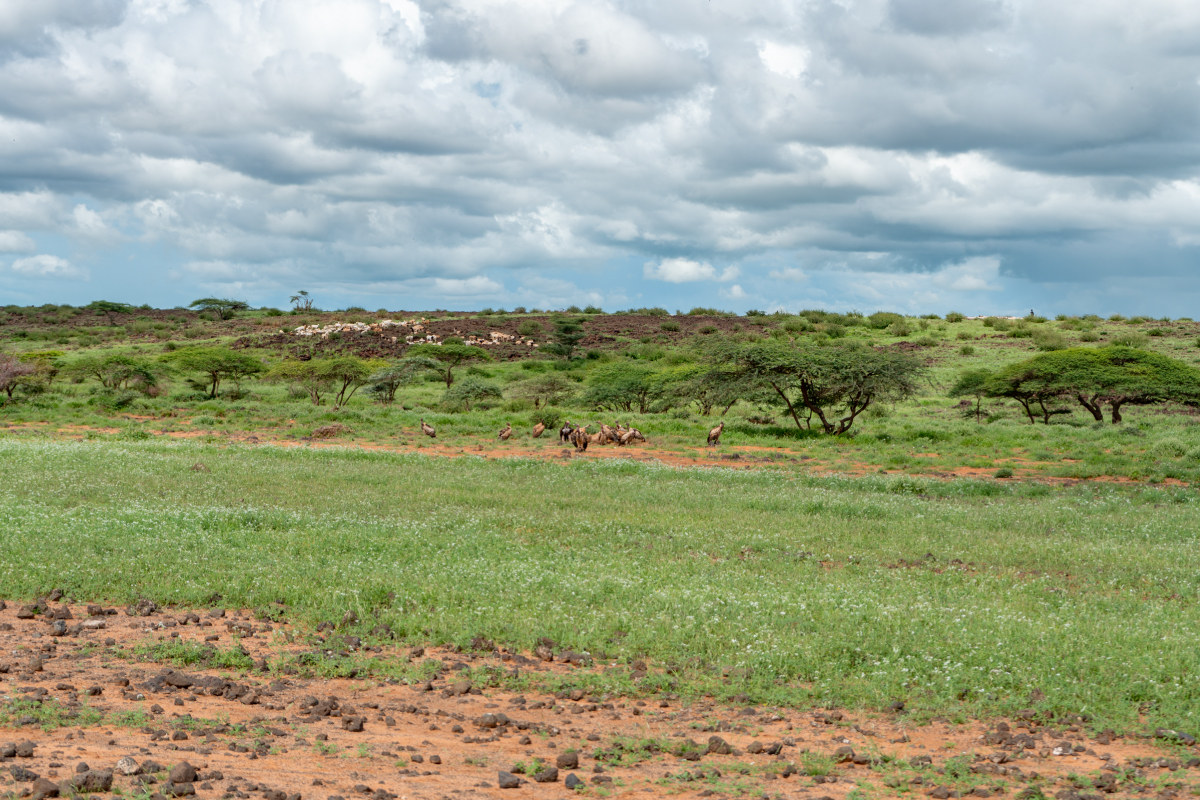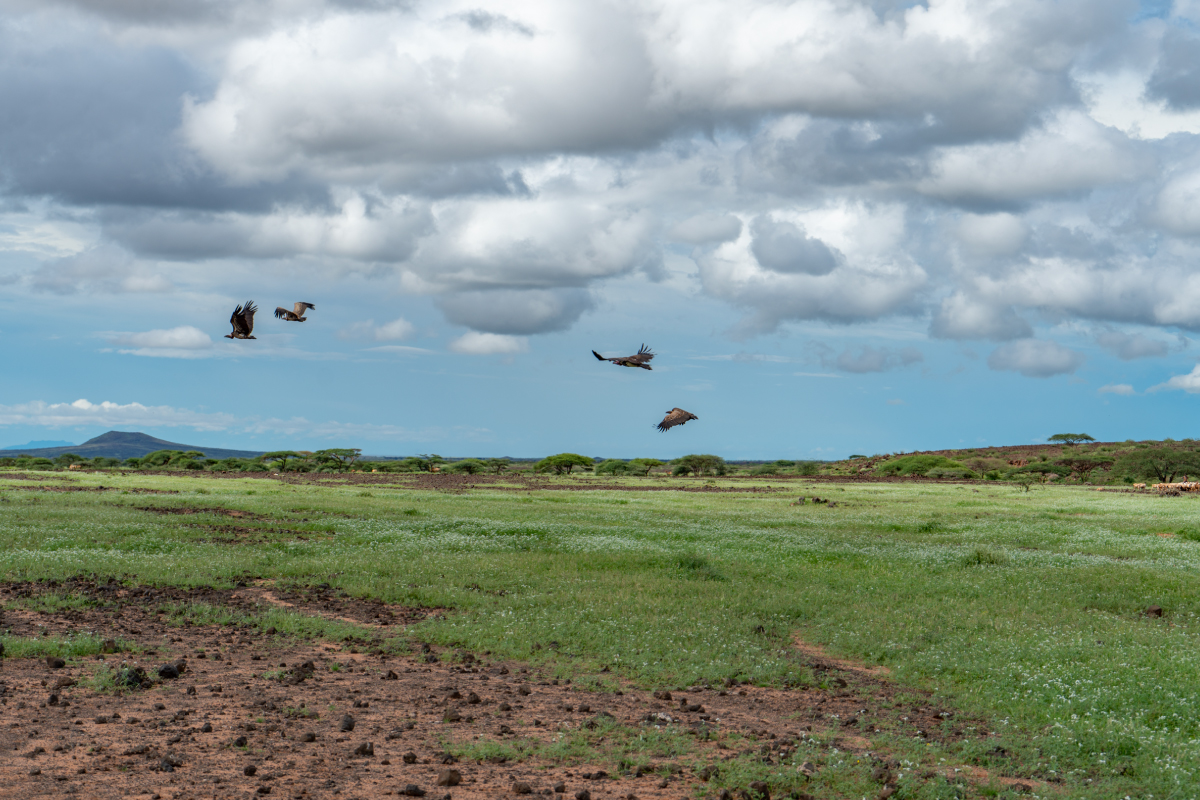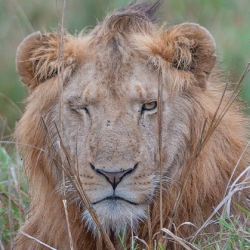World Zoonoses Day 2023: why we must protect vanishing vultures
Recently, I went on a memorable safari with a team of Kenya’s most experienced bird watchers. At the start of the expansive Dida Galgallo plains (Marsabit County, Northern Kenya), we came across this special sighting that got everyone up. You know those moments that instantly light people up from within? This was it! And no, there wasn’t any lion, leopard or cheetah in the vicinity.
So what exactly caught our attention? It was a wake of vultures marauding over a camel carrion just a few hundred metres from a cattle camp. In this location, we observed 5 of the 8 vulture species found in Kenya: African white backed vulture, Ruppell’s vulture, hooded vulture, white headed vulture and the lappet faced vulture.
But what role do these birds play in an ecosystem to warrant their protection?
These raptors are the unsung clean up crew of nature. Vultures are remarkably effective at removing disease causing pathogens and toxins from the environment by eating up carcasses. The stomachs of these birds of prey contain an incredible amount of acid that destroys harmful bacteria found in carrion, mitigating the spread of diseases that can potentially spread to humans or other species.
However, over the past 3 decades, African vulture populations have declined by over 80% - a devastating reality that should worry everyone and ring the alarm bells. Poisoning by livestock herders has unfortunately landed some of these birds on the IUCN endangered species list.
On World Zoonoses Day, let’s remember that without vultures, we’re faced with the risk of dealing with #zoonotic diseases in the wild and in our communities. It’s like a medical insurance policy of sorts, without the hefty premiums of course. We urgently need to do everything possible to save these raptors from the threat of extinction by addressing the drivers of their decline and investing in conservation solutions that are geared towards co-existence. A reasonable premium for such an important ecosystem service.












